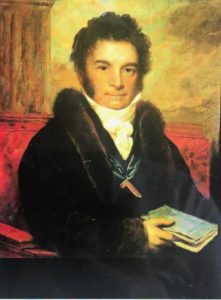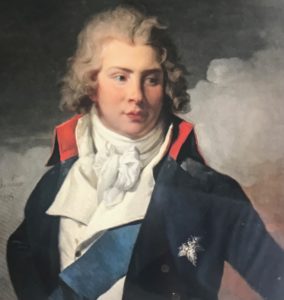Brazilian Studies in the United Kingdom
Our colleague Kenneth Maxwell gave the keynote address to the 2025 Brazilian Studies Program Annual Conference held at Oxford on May 2, 2025.
We published the first part of his address which addressed the question of Brazil’s role in the evolving global system.
In this piece, he dealt with the future of Brazilian studies in the United Kingdom and in so doing re-visited his own experience and path to working on Brazilian issues.
* * * * * *
60 years ago this year, actual exactly 60 years ago this month, my own Brazil ceased to be entirely phantasmagorical
I had seen the film “Black Orpheus” (1959) while an undergraduate at Cambridge University and had been determined thereafter to see Rio de Janeiro for myself. I know that many Brazilians regard this film of Albert Camus (1912-1982) with disdain. They see it as a touristic, exotic, and erotic, view of Brazil, even though in the 1960s there were very few tourists who actually made it to Brazil.
Caetano Veloso took me to task for liking Black Orpheus in the pages of The New York Times after I had reviewed the new “Orfeu” in 1999 for the Folha de São Paulo. He is a fiend of the director, Caca Diegues. And he wrote the music..
But I am entirely unapologetic. Albert Camus’s film, and the view from the Moro da Babilônia, a favela in Leme, overlooking Copacabana beach, remains as magical to me today as it was when I first saw the film as a 19-year-old wrapped in my black college gown, in a cold and dilapidated Cambridge picture palace on outskirts of town.
I met my first real and non-phantasmagorical Brazilian, Sergio Buarque de Hollanda (1902-1982), and his very beautiful then young son Chico, in Professor Stanley Stein’s basement office in the history department at Princeton in early 1965. And later that same year I eventually arrived in Rio de Janeiro.
I had a metropolitan field training program grant from Columbia University. This was a summer program intended for anthropologists and run by Prof Charles Wagley of Columbia University (1913-1991). I had only just arrived in the U.S. in the October of the year before in 1964 to work for my PhD under Professor Stein, an eminent expert on Brazilian History at Princeton.
Professor Stein (1920-2019) suggested I apply. I was shoe-in actually, thought I did not know this at the time, since although the program was supposed to be inter-University, it was actually given mainly to Professor Wagley’s Columbia anthropology graduate students. I was the only non-Columbia history graduate student to apply.
But Mr. Brazil, his real name believe it or not, who was charged at the Princeton University U-store’s travel agency to arrange my travel to Brazil for four months, and he did so via Miami, Belem, the northeast, and Salvador da Bahia.
I arrived at Salvador late by Caravelle jet in the evening and followed some other passages on a Kombi which took us into the city on a road along the beach where there were tall palm trees and lovers embracing and looking out to the ocean and the setting sun.
We bumped up a cobbled street to the Palace Hotel on the Rua Chile. When I woke up the next morning, I opened the shutters to revel the great simmering deep blue bay of All Saints stretching out below me, and on the far horizon a tiny white sail slowly crossing the bay into the port below. It was a magical introduction to Brazil.
So, I end with a suggestion.
At Oxford today, the Brazil Conference with the new programme on Brazilian studies is an admirable initiative, but I would urge you to think of continuity.
Professor Sir Raymond Carr (1919-2015) was the first Professor of Latin American Studies at Oxford. Sir Raymond Carr was a brilliant eccentric scholar, a great drinker, and a very distinguished scholar of Spanish history. But he knew much more about Fox Hunting in West Somerset than he did about Latin America.
I met him on his first trip as the region in Rio de Janeiro at a dinner given for him by my friend, Christian Adams (1939-1996) who was a recent Oxford graduate, and who was then a young diplomat in Rio de Janeiro. Carr lost his manuscript he said later on that week on his way to Bolivia and returned post haste to Oxford. I do not mean to denigrate Carr in any way. But it is regrettable that Oxford chose to discontinue the chair of which he was the first incumbent. Which is a great pity.
So what I mean about continuity is important.
When I was the program director of the Tinker Foundation in New York I was responsible for founding two Tinker Chairs of Latin American Studies at leading American universities: Chicago and Stanford. The Tinker Chairs have brought notable historians, writers, artists, scientists and journalists to the United States since 1968.
Two Tinker Chairs already existed, at the University of Texas and at Columbia University. Later one was established at the University of Wisconsin. The Tinker endowment was $900,000 each for the first two chairs. The later Tinker endowments were of one million US dollars.
Later Martha Muse, the president of the Tinker Foundation, asked me to review the chairs. We found that in some cases endowments had risen in value to between eight and ten million dollars depending on the investment strategy of the various universities. And I also established the Tinker field research program, a competitive grant which provides five years of support to American universities and which have taken young American graduate students, thousands now, to Latin America, much on the model that I had in 1965.
Over the years many leading Latin Americas, now hundreds in fact, have been Tinker visiting professors, including while I was teaching at Columbia, the economist Celso Furtado, the geographer Milton Santos, and the journalist Elio Gaspari.
There are of course many very rich Brazilians. Not many of them are philanthropically minded it is true. But some are. And they might well be persuaded to fund a chair of Brazilian Studies at Oxford. There is after all nowhere else so prestigious a location for such a chair.
And it should lead to the appoint a permanent professor and not a visitor.

And I have a name for this chair of Brazilian Studies: Hypolito da Costa.
He was Ambassador Antonio Patriota’s predecessor and he was the first Brazilian Ambassador to the United Kingdom.
Hypolito da Costa (1774-1823) was a truly remarkable man who was also the founder of Brazilian journalism. Born in the Colonia do Sacramento, now part of Uruguay, in 1774, he was a graduate of the reformed university of Coimbra in Portugal in 1798. He had been sent by Dom Rodrigo de Sousa Coutinho (1755-1812) to the United States for two years where he met many of the founders of the new American republic in Philadelphia (then the capital), and he visited Mexico. In Philadelphia he became a mason.
On his return to Lisbon, he was sent to London to acquire books for the royal library as well as to establish relationships with the Grand Oriente Masonic Lodge. On his return to Lisbon, he imprisoned for his Masonic activities by the chief of police, Pina Manique (1733-1805), for three years. He escaped via Spain in 1805, and he returned to London under the protection of the Duke of Sussex, prince Augustus Frederick, the sixth son of King George III.

Prince Augustus Frederick, The Duke of Sussex (1773-1843), was grand master of English masonry. Hypolito da Costa became his personal secretary. In London he edited the “Correio Brasiliense” which circulated between 1 June 1808 and 1823 (29 volumes in total) This journal espoused liberal views, covered the 1820 rebellion in Oporto, and the movement which led to the independence of Brazil. The Duke of Sussex was also known for his liberal views, which included the reform of Parliament, the abolition of the slave trade, and the removal of civil restrictions on Jews and Dissenters. He was Queen Victoria’s favorite uncle.
The Duke of Sussex, like Harry, the current Duke of Sussex, had a marriage which created problems at home, and as a consequence he lived in exile in Portugal for several years, his court housed in the palácio das necessidades, currently the HQ of the Portuguese Ministry of Foreign Affairs. But that is another story.
Hypolito da Costa died in 1823 on the 11 September, before he received the notice of his appointment as the Ambassdor of the newly declared and independent empire of Brazil. He is patron of Chair 17 at the Brazilian Academy of Letters.
So I end with this idea and this suggestion. A hope that our conference today might also have a more permanent outcome for Brazilian studies at Oxford and in the United Kingdom.
For a Portuguese translation of this article, see the following:

